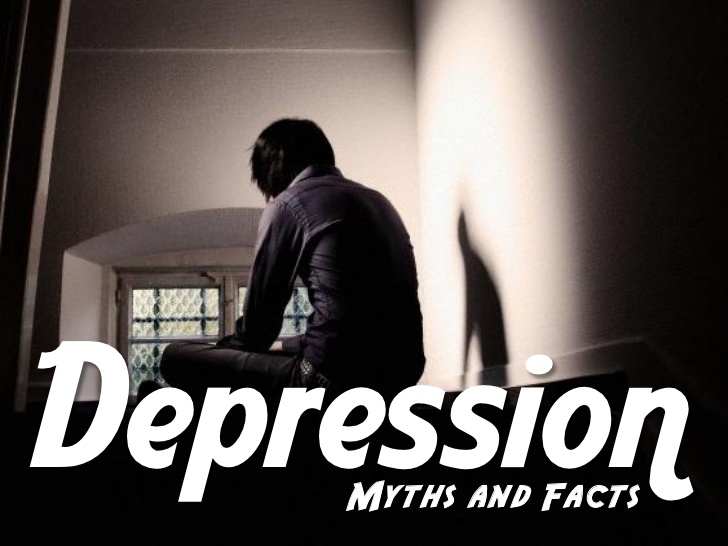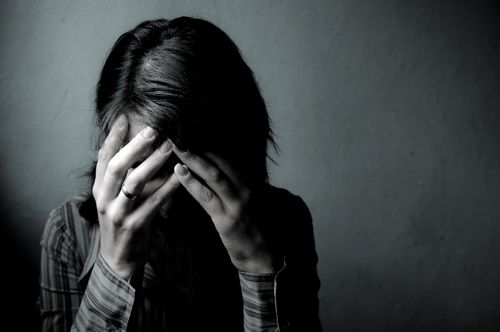Depression Myths vs The Truth



 Despite being one of the most common mental disorders, depression in often misunderstood and undermined. These myths and misconceptions may contribute to the stigma attached to depression; discouraging those affected to talk about their symptoms or seek help and treatment. On the whole, most people are pretty clued up about depression – they know that mental health problems are important, and in most cases, recognise it’s important to get support. But there are still some misunderstandings and myths out there in society, which make living with depression a lot harder to deal with. The following is a list of myths and commonly held misconceptions about depression, and the corresponding facts.
Despite being one of the most common mental disorders, depression in often misunderstood and undermined. These myths and misconceptions may contribute to the stigma attached to depression; discouraging those affected to talk about their symptoms or seek help and treatment. On the whole, most people are pretty clued up about depression – they know that mental health problems are important, and in most cases, recognise it’s important to get support. But there are still some misunderstandings and myths out there in society, which make living with depression a lot harder to deal with. The following is a list of myths and commonly held misconceptions about depression, and the corresponding facts.
1) MYTH: Depression is rare and will not happen to me.
THE TRUTH: Depression can happen to anyone, regardless of sex, race or age. It affects 121 million people worldwide and is one of the most common mental health problems. The World Health Organisation estimates that 5- 10% of people may need help for depression at any time and as many as 8- 20% of people carry the risk of developing depression during their lifetime.
2) MYTH: Depression is about feeling sad and lonely.
THE TRUTH: Depression is more than feeling sad. Persistent feelings of sadness is one of the symptoms of depression. However, depression also involves physical symptoms such as changes in appetite and quality of sleep, emotional symptoms such as feelings of worthlessness and changes in behaviour such as the loss of interest in our usual activities. For people experiencing depression, these symptoms continue for more than two weeks.
3) MYTH: Depression is a sign of weakness.
THE TRUTH: Depression is unrelated to the strength of someone’s character; it is a serious medical condition like asthma or diabetes. Depression is often triggered by major life events that may be challenging to cope with, e.g., the loss of a loved one, loss of job, etc.
4) MYTH: Depression is temporary and will go away by itself.
THE TRUTH: Depression will not go away by itself. It is a medical condition that requires treatment and support. In fact, the symptoms of depression are likely to get worse if left untreated. Thus, it is important to seek help early to prevent depressive symptoms from getting worse.
5) MYTH: Depression cannot be treated.
THE TRUTH: Depression is among the most treatable of all mental health conditions. The World Health Organization reported that 60- 80% of individuals positively respond to a combination of medication and psychotherapy treatments. Nevertheless, it is important to understand that treatment for depression takes time and that recovery may take many months.
6) MYTH: Depression can only be treated by medication.
THE TRUTH: Medication is only one of the available options for treatment of depression. Depression may also be treated using psychological intervention or counselling, lifestyle changes etc. The treatment needs of each individual may be different. Some people may find medication most effective, for others psychological intervention may be most helpful; a combination of treatments may work best for others. Thus, it is best to approach a mental health professional to find out more about different types of treatment and to develop an individualised support plan.
7) MYTH: Just talking and listening to your friends and family will be enough to treat depression.
THE TRUTH: Talking and listening to your friends and family is really important to help with the day-to-day ups and downs of life. But like any other illness, depression needs to be managed with professional help. Doctors, counsellors, and psychologists can provide treatments and self-management strategies which your family can’t.
8) MYTH: People who are depressed need to wake up and get a grip and stop feeling sorry for themselves.
THE TRUTH: People don’t choose to be depressed. Depression is an illness that is able to be treated with the right help from health professionals. It’s not something that people can just “snap out of”.
9) MYTH: If you’re depressed, it just means you’re going through a tough time at the moment.
THE TRUTH: Depression isn’t just going through a tough time. Tough times and stressful events —like a relationship breakup or your parents getting a divorce—can lead to depression but they’re not the only cause of depression. Sometimes depression can have no obvious cause at all but it may be the result of chemical imbalances in the brain.
10) MYTH: There is a medical test to diagnose depression.
THE TRUTH: Unlike diabetes, high blood pressure or cancer, there is no biological or medical test for clinical depression. A trained health professional makes a diagnosis of clinical depression by interviewing someone to see if they have a particular set of symptoms. A questionnaire can show if someone might have a clinical depression, but can’t give a diagnosis.
clinical depression. A trained health professional makes a diagnosis of clinical depression by interviewing someone to see if they have a particular set of symptoms. A questionnaire can show if someone might have a clinical depression, but can’t give a diagnosis.




